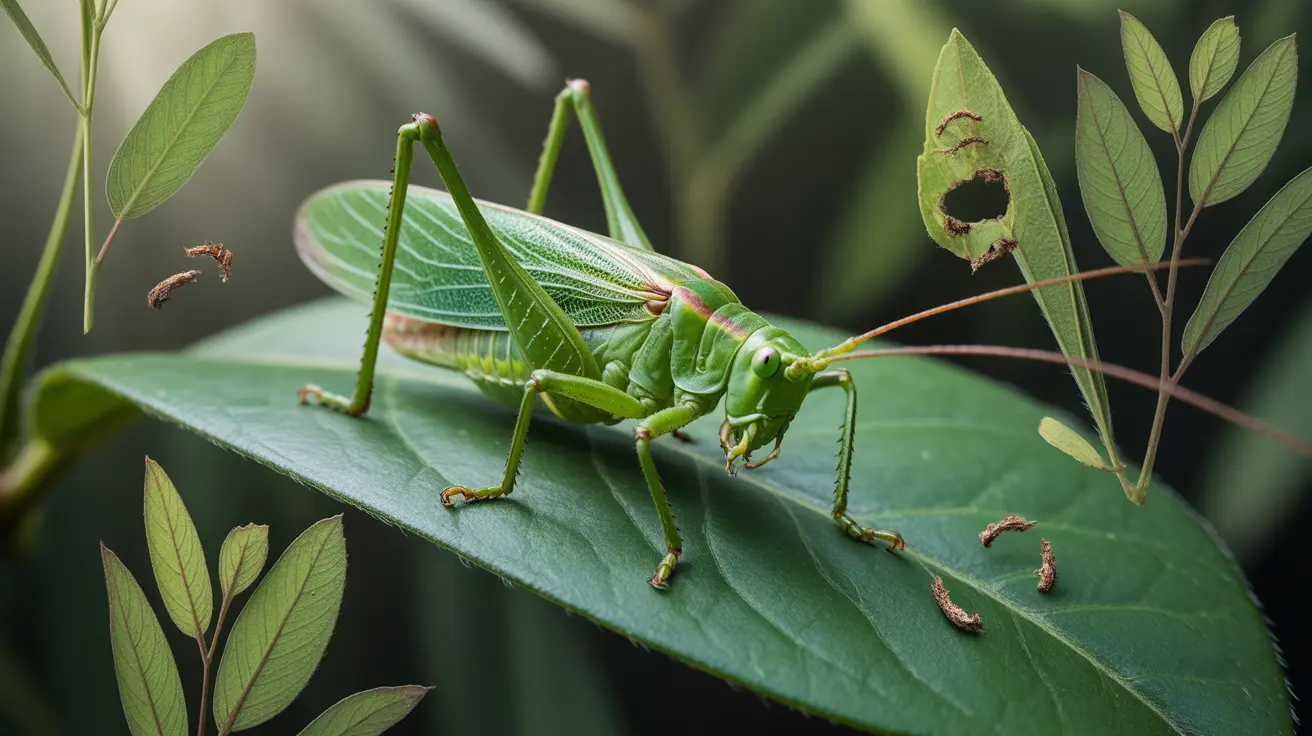While katydids are generally peaceful insects known for their distinctive chirping and leaf-like appearance, encounters with these creatures can occasionally result in bites. Understanding katydid bites, their potential effects, and proper treatment methods is essential for anyone who spends time outdoors or gardens regularly.
This comprehensive guide will explore everything you need to know about katydid bites, including symptoms, treatment options, and prevention strategies to help you handle these encounters safely and effectively.
Understanding Katydid Behavior and Bite Risk
Katydids are typically herbivorous insects that prefer to feed on leaves and plants. However, they may bite defensively when handled or feeling threatened. These bites are generally considered mild and rarely pose serious health risks to humans.
Unlike some insects that bite to feed, katydids bite primarily as a defensive mechanism. Their mandibles (mouthparts) are designed for chewing vegetation but can deliver a pinch-like bite when the insect feels threatened.
Identifying Katydid Bite Symptoms
When a katydid bites, you may experience several common symptoms:
- Mild to moderate pain at the bite site
- Temporary redness
- Minor swelling
- Slight itching
- Small marks or indentations where the mandibles made contact
These symptoms typically resolve within a few hours to a day, depending on individual sensitivity and the severity of the bite.
Treatment and First Aid
Most katydid bites can be effectively treated at home using simple first aid measures:
- Wash the affected area with mild soap and cool water
- Apply a cold compress to reduce swelling
- Use over-the-counter antihistamine cream if itching occurs
- Keep the bite area clean and dry
- Monitor for any signs of infection
Prevention Strategies
To minimize the risk of katydid bites, consider implementing these preventive measures:
- Wear protective clothing when gardening
- Use gloves when handling plants or vegetation
- Avoid directly handling katydids
- Maintain appropriate distance when observing these insects
- Keep garden areas well-maintained to reduce hiding spots
Garden and Pet Safety Considerations
While katydids can damage some garden plants by feeding on leaves, they generally don't pose significant threats to garden ecosystems. Similarly, they rarely cause problems for pets, though it's best to discourage pets from playing with or trying to catch these insects.
Frequently Asked Questions
What symptoms should I expect from a katydid bite and how serious are they?
Katydid bites typically cause mild symptoms including temporary pain, redness, and minor swelling at the bite site. These bites are rarely serious and usually resolve within 24 hours without complications.
How do I treat a katydid bite at home to reduce itching and swelling?
Clean the bite area with soap and water, apply a cold compress to reduce swelling, and use over-the-counter antihistamine cream if needed. Keep the area clean and dry while it heals.
Can katydid bites cause infections or allergic reactions that require medical attention?
While rare, infections or allergic reactions can occur. Seek medical attention if you experience severe swelling, persistent pain, spreading redness, or signs of infection such as warmth or discharge at the bite site.
How can I prevent katydids from biting me or my family?
Prevent bites by wearing protective clothing when gardening, using gloves when handling plants, and avoiding direct contact with katydids. Teaching children not to handle these insects is also important.
Are katydids harmful to humans, pets, or plants in my garden?
Katydids are generally harmless to humans and pets, though they may occasionally damage plant leaves. Their bites are defensive rather than aggressive, and they play a beneficial role in garden ecosystems as part of the natural food chain.




